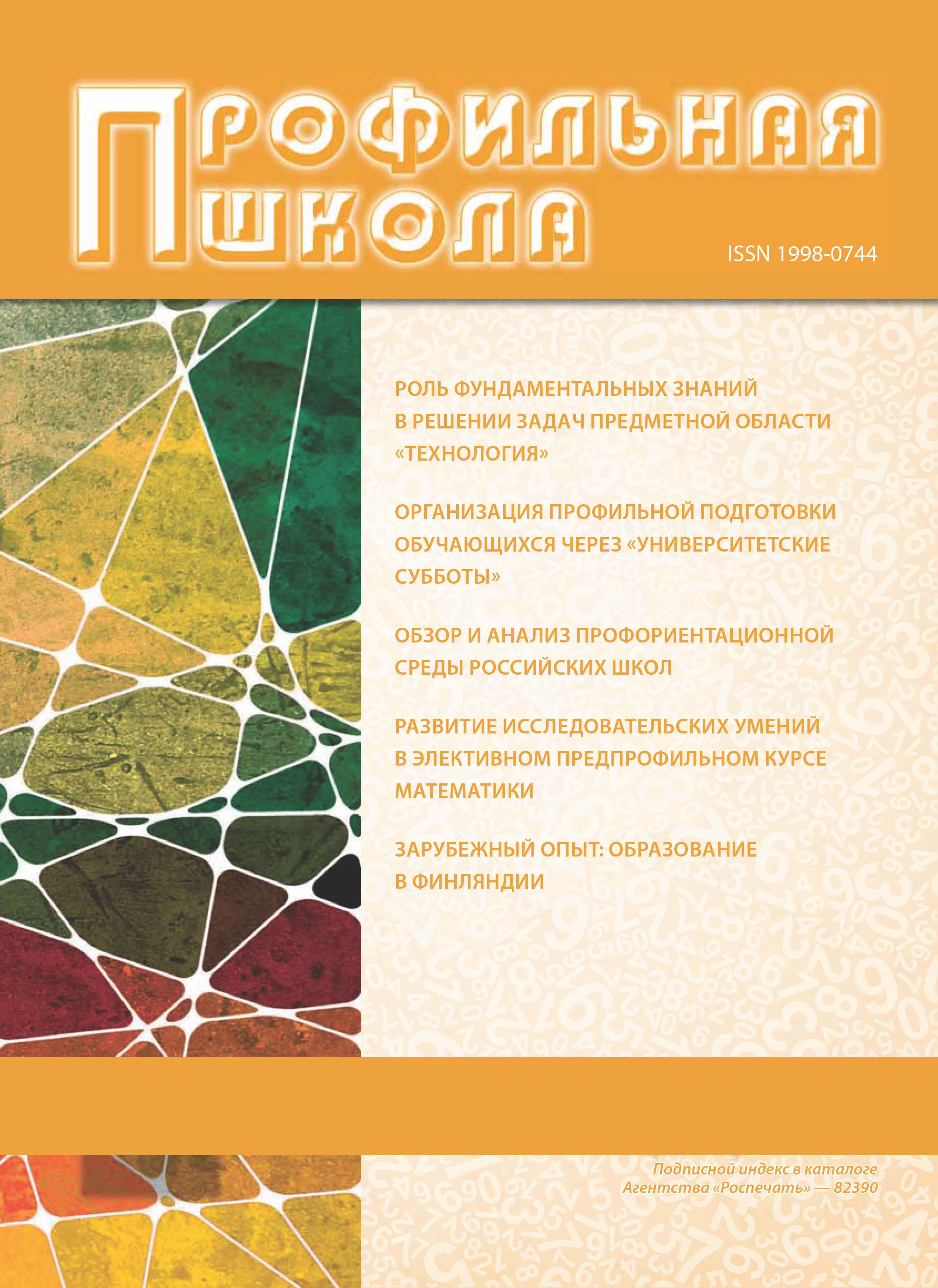from 01.01.2013 until now
Federal Penal Service of Russia (Department of Mathematics and Information Technology, Associate Professor)
from 01.01.2016 until now
Ryazan', Orel, Russian Federation
In the current sanitary and epidemiological situation and the total transition to a distance format of communication between the teacher and the student, the problem of maintaining the quality of the educational services provided at the proper level becomes especially urgent. One of the options for solving this problem is seen by the authors in a well-established feedback loop with students and a competent organization of pedagogical communication within the framework of e-learning. This article describes the experience of organizing distance communication in the classroom in the disciplines of the mathematical cycle with junior-year students of economic specialties, conducted using video conferencing, electronic information and educational environment and author's workbooks on the subject. The effectiveness of this method is confirmed by the results of checking the residual knowledge of students in mathematics, carried out when licensing their specialty.
methodology of mathematics teaching, pedagogical technology, e-learning, electronic information and educational environment, videoconference
1. Federal'nyy zakon ot 29.12.2012 N 273-FZ «Ob obrazovanii v Rossiyskoy Federatsii» [Federal Law of December 29, 2012 N 273-FZ "On Education in the Russian Federation"].
2. Davydochkina S.V., Maskina M.S. Organizatsiya zanyatiy po matematicheskim distsiplinam na osnove tekhnologii polnogo usvoeniya v vuzakh ekonomicheskoy napravlennosti [Organization of classes in mathematical disciplines based on the technology of complete assimilation in universities of economic orientation]. Nauchno-pedagogicheskoe obozrenie [Scientific and pedagogical review]. 2019, I. 5 (27), pp. 48-55. DOI: https://doi.org/10.23951/2307-6127-2019-5-48-55; EDN: https://elibrary.ru/RTBLBF
3. Davydochkina S.V. Organizatsiya distantsionnogo obucheniya pri izuchenii distsiplin matematicheskogo tsikla [Organization of distance learning in the study of disciplines of the mathematical cycle]. Voprosy pedagogiki [Questions of pedagogy]. 2020, I. 9-2, pp. 61-66. EDN: https://elibrary.ru/MLABWH
4. Maskina M.S. Primenenie algoritmicheskogo metoda obucheniya na zanyatiyakh po distsiplinam matematicheskogo tsikla [Application of the algorithmic teaching method in the classroom in the disciplines of the mathematical cycle]. Standarty i monitoring v obrazovanii [Standards and monitoring in education]. 2020, V. 8, I. 5, pp. 43-48. DOI: https://doi.org/10.12737/1998-1740-2020-43-48; EDN: https://elibrary.ru/WYOHRW
5. Maskina M.S., Vidov S.V. Vyyavlenie i uchet aktsentuatsiy v pedagogicheskom obshchenii [Revealing and taking into account accentuations in pedagogical communication]. Nauchnye issledovaniya i razrabotki. Sotsial'no-gumani¬tarnye issledovaniya i tekhnologii [Scientific research and development. Social and humanitarian research and technology]. 2018, V. 7, I. 1, pp. 49-53.
6. Maskina M.S. Obuchenie dokazatel'stvu matematicheski odarennykh uchashchikhsya na fakul'tativnykh kursakh. Kand. Diss [Teaching proof of mathematically gifted students in elective courses. Cand. Diss]. Saransk, 2003, p. 187. EDN: https://elibrary.ru/NMGDJB
7. Mordkovich A.G. O nekotorykh "melochakh" v prepodavanii shkol'nogo kursa matematiki [On some "little things" in teaching a school course in mathematics]. Matematika v sovremennom mire. Materialy Mezhdunarodnoy konferentsii, posvyashchennoy 150-letiyu D.A. Grave. Vologodskiy gosudarstvennyy pedagogicheskiy universitet [Mathematics in the modern world. Materials of the International Conference dedicated to the 150th anniversary of D.A. Grave. Vologda State Pedagogical University]. 2013, pp. 92-95. EDN: https://elibrary.ru/USFWXV
8. Ivlicheva N.A. Metodika realizatsii elektronnogo obucheniya pri provedenii auditornykh zanyatiy po ochnoy forme [Methodology for the implementation of e-learning when conducting classroom classes in full-time form]. Matematicheskie metody i informatsionno-tekhnicheskie sredstva: materialy XV Vserossiyskoy nauchno-prakticheskoy konferentsii [Mathematical methods and information and technical means: materials of the XV All-Russian scientific and practical conference]. 2019, pp. 78-82. EDN: https://elibrary.ru/INHGWW
9. Maskina M.S., Vidov S.V. Uchet individual'nykh psikhologicheskikh oso-bennostey kursantov akademii FSIN Rossii pri obuchenii distsiplinam informatsionno-tekhnicheskoy i matematicheskoy napravlennosti [Taking into account the individual psychological characteristics of cadets of the Academy of the Federal Penitentiary Service of Russia when teaching information-technical and mathematical disciplines]. Vedomosti ugolovno-ispolnitel'noy sistemy [Bulletin of the Penitentiary System]. 2019, I. 8 (207), pp. 22-29. EDN: https://elibrary.ru/OGUQLY
10. Obrazovatel'naya sreda Akademii FSIN Rossii [Educational environment of the Academy of the Federal Penitentiary Service of Russia]. Available at: https://lms.apu-fsin.ru (accessed 27 February 2021).
11. Davydochkina S.V. Sposob realizatsii informatsionnykh i kommunikatsionnykh tekhnologiy pri razrabotke elektronnoy formy rabochey tetradi [A method of implementing information and communication technologies in the development of an electronic form of a workbook]. Pedagogicheskaya informatika [Pedagogical informatics]. 2017, I. 3, pp. 34-42. EDN: https://elibrary.ru/ZIWJHN
12. Davydochkina S.V., Maskina M.S. Primenenie tekhnologii polnogo usvoeniya pri organizatsii zanyatiy po distsiplinam matematicheskogo tsikla [Application of the technology of complete assimilation in the organization of classes in the disciplines of the mathematical cycle]. Nauchnye issledovaniya i razrabotki. Sotsial'no-gumanitarnye issledovaniya i tekhnologii [Research and Development. Social and humanitarian research and technology]. 2019, V. 8, I. 2, pp. 60-65. DOI: https://doi.org/10.12737/article_5cf51564dc1909.29581098; EDN: https://elibrary.ru/EPPOLL







